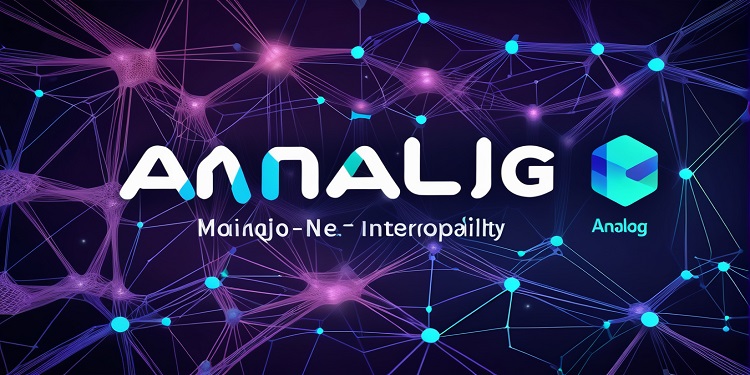Analog has officially launched its mainnet, marking a significant step forward in enhancing blockchain interoperability. The network, built on a Proof-of-Authority (PoA) consensus mechanism, serves as the groundwork for upcoming upgrades, which will include Nominated Proof of Stake (NPoS) consensus, cross-chain messaging, and advanced data query capabilities. These improvements are expected to be introduced alongside Analog’s token generation event (TGE), though the timeline for this milestone has not yet been disclosed.
The launch comes after a robust three-phase testnet period, during which over 345,000 accounts were created, and 1.9 million cross-chain datasets were generated. This extensive testing allowed developers to fine-tune platform features, ensuring readiness for real-world deployment and applications.
Driving Innovation Across Industries
Analog aims to establish itself as a key player in blockchain interoperability by providing developers with tools to create sophisticated cross-chain applications. The potential of its layer-0 technology goes beyond blockchain-specific use cases, extending to various industries.
In the financial sector, Analog’s collaboration with Frax Finance enables real-time Oracle data integration for decentralized stablecoin systems. This functionality enhances the reliability and efficiency of financial operations in decentralized ecosystems.
The healthcare industry also stands to benefit from Analog’s capabilities. Its tools could facilitate secure, interoperable management of patient data, addressing persistent issues with data silos and improving overall healthcare data infrastructure.
Additionally, Analog’s mainnet offers solutions for the supply chain sector. With its cross-chain tools, companies can achieve real-time tracking of goods across decentralized networks, increasing transparency and reducing operational inefficiencies.
Partnerships and Ecosystem Growth
Even before its mainnet launch, Analog formed notable partnerships that underscore its potential. XYO, a leading provider of geo-location technology, leverages Analog to enhance access to Decentralized Physical Infrastructure Network (DePIN) data. Similarly, Vemo Network has integrated Analog to tokenize locked assets, transforming them into tradable NFTs.
StationX, another partner, utilizes Analog’s automation tools to improve DAO governance processes, streamlining operations and increasing efficiency. The mainnet further strengthens its ecosystem with a focus on user authenticity, as over 42,000 individuals have completed Proof of Humanity verification on the platform.
A Broader Context of Blockchain Interoperability
Analog’s advancements in cross-chain interoperability are part of a broader trend in the blockchain industry throughout 2024. The Aptos Foundation, for instance, has integrated Circle’s USDC and Stripe to enhance its cross-chain functionalities. Meanwhile, Internet Computer (ICP) has outlined its interoperability roadmap, with an emphasis on Decentralized AI.
Analog’s mainnet launch positions it as a frontrunner in this rapidly evolving landscape, offering a robust infrastructure for developers and industries seeking to harness the benefits of decentralized networks. By focusing on interoperability, security, and efficiency, Analog is paving the way for the next phase of blockchain adoption and innovation.
